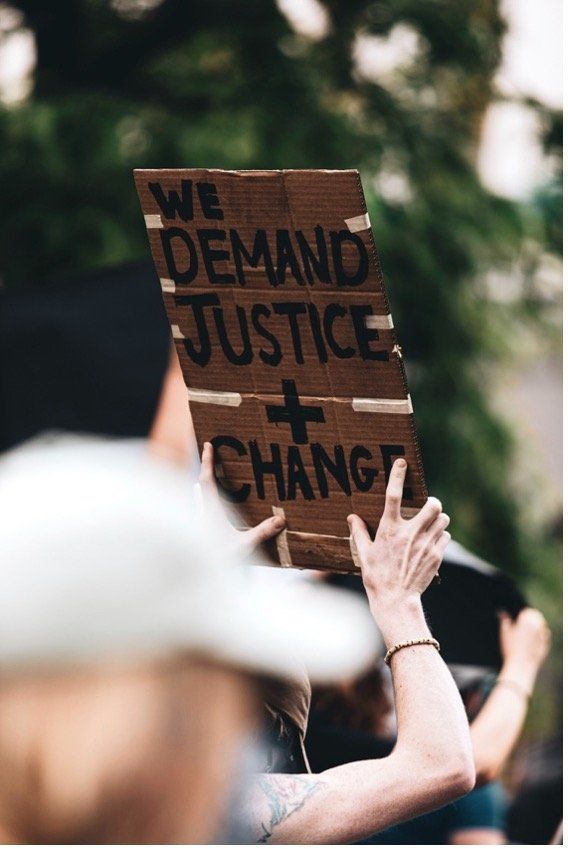2023 TOP 10 BLOG
VJEL Staff Editor: Tatum Daily
Faculty Member: Christophe Courchesne
Restoration of the Marshall Islands: The Time Has Come for the U.S. to Reckon with its Past and Rebuild Trust in the Region
The U.S.’s Nuclear Legacy in the Marshall Islands
The Republic of the Marshall Islands (RMI), located just north of the equator and midway between Hawaii and Australia, is one of the lowest lying countries in the world. Rising sea levels from climate change threaten to make RMI uninhabitable by the end of the 21st century. However, RMI’s dire environmental concerns do not end with climate change. Rather, nuclear waste and radiation have plagued RMI’s land and waters since the 1940s—the legacy of the U.S.’s Cold War nuclear testing program—which to this day, the U.S. government has failed to fully address.
The Marshall Islands were occupied and controlled by several different countries throughout its history. In 1944, during World War II, the United States took control of the area. Shortly after the war, several Marshall Islands atolls became official testing grounds for U.S. nuclear bombs. The U.S.’s testing program included other islands in the Pacific and collectively these sites became known as the Pacific Proving Grounds. Between 1946 and 1958, the testing program “drenched the Marshall Islands with firepower equaling the energy yield of 7,000 Hiroshima bombs.” The detonations changed the atolls’ topographies and left them in a highly contaminated condition from residual radioactivity.
The U.S. government began cleanup efforts in the late 1970s. Some of those efforts created new problems. For example, in 1979, the U.S. military built the so-called Runit Dome, a 350-foot-wide concrete cap meant to temporarily contain some of the radioactive contamination left behind from the nuclear testing. However, the U.S. has yet to devise a permanent decontamination plan. Thus, the hidden waste remains and has started leaking into the groundwater below as rising sea levels threaten the Dome’s structural integrity.
Another ongoing consequence of the testing program is that some atolls remain unsafe and uninhabitable due to radioactive contamination—displacing islanders from their homes for decades. Health concerns, particularly increased cancer rates, also trouble the island nation. Islanders have sought justice in the form of redress from the U.S. since the 1970s.
The Marshall Islands achieved independence as the island nation of RMI when voters approved its first constitution in 1979. In 1983 RMI signed the Compact of Free Association (COFA) with the U.S., requiring the U.S. to provide defense and financial assistance for the republic. Additionally, COFA committed U.S. funds and a joint U.S.-Marshallese Nuclear Claims Tribunal to resolve personal injury claims stemming from the nuclear impacts of the Pacific Proving Grounds. Section 177 of COFA constitutes the corresponding 1986 settlement agreement between RMI and the U.S. for the “full settlement of all claims, past, present, and future … related to the Nuclear Testing Program.” However, the compensation fund consisted of a mere $150 million which is now depleted.
Unfortunately, over the intervening decades, the U.S. has continuously neglected its commitments to redress the harms to RMI’s people from the U.S. testing program. For instance, the Nuclear Claims Tribunal has awarded RMI $2.2 billion in judgments in five major class-action claims. However, Congress failed to fund the judgments and two lawsuits to enforce them were dismissed by U.S. federal courts. Additionally, U.S. lawmakers have criticized Congress’s continuous failure to cover the costs of promised medical care and services to displaced Marshallese citizens who migrate to the United States for health care, education, and employment opportunities. Such criticisms have intensified as the impacts of climate change become more pronounced in the Pacific Island region.
Compact of Free Association Negotiations and Heightened International Attention
COFA’s funding terms expires on September 30, 2023. Negotiations to renew COFA began during the Trump administration. The U.S.’s lack of commitment to address the ongoing health, environmental and economic issues stemming from the nuclear testing program has proven to be a key stumbling block in the negotiation process. RMI submitted a proposed settlement agreement to U.S. negotiators in July 2022. RMI then halted COFA negotiations in September because RMI had yet to receive a response. However, reaching an agreement has taken on increasing geopolitical significance for the U.S. in the context of the U.S.’s strategic competition with China for economic and other influence in the Pacific region. Specifically, concerns about climate change, fragile economic security, and questions about U.S. reliability make the Pacific Island region particularly vulnerable to Chinese influence. Moreover, failed COFA negotiations could lead the island nations to look to China for funding and increased trade.
Less than a week after RMI’s halt to the COFA negotiations, leaders from 14 pacific nations and territories gathered in Washington, D.C. for the historic U.S.-Pacific Island Country Summit. The summit’s agenda focused on addressing the climate crisis, clean energy, and sustainable infrastructure. The summit produced several documents outlining the U.S.’s commitment to increase funding for these priorities across the region, including The Roadmap for a 21st-Century U.S.-Pacific Island Partnership, which commits the U.S. to provide over $810 million to fund “additional expanded programs” in the region. These programs aim to: expand diplomatic engagement; enhance maritime security; increase resilience programs related to combatting climate change; and provide development assistance through educational opportunities, investment in “climate-smart” infrastructure, and by addressing barriers to trade. The U.S. will also “explore assistance options” to address unexploded ordnance (military ammunition leftover from past wars) in RMI. However, notably, there is no mention of plans to address the nuclear waste. More importantly, the Roadmap does not include the funds RMI is seeking under COFA.
In early October 2022, the United Nations Human Rights Council adopted a resolution on the nuclear legacy of RMI. The resolution aims to secure justice for the human rights impacts of the nuclear testing on the Marshallese. Specifically, the Council will investigate the challenges and suffering resulting from the nuclear testing program, including higher cancer rates, and will submit a report on these impacts in September 2024. Although the resolution falls short of demanding reparations, the U.S., and other nuclear states, fear the initiative could open the door to other countries bringing similar issues to the Council. However, the initiative also highlights the importance of the issues within the international community. In this context of international attention, RMI is unlikely to back down from its demands.
Looking Forward to 2023
RMI resumed negotiations with the U.S. in November 2022. The ongoing COFA negotiations present the U.S. with the opportunity to reckon with its past and rebuild trust with the region. As the deadline approaches, numerous factors are in play that will influence the outcome. For instance, questions of U.S. prioritization and reliability often depend on the outcome of elections. While there is strong bipartisan support for the Pacific Islands in Congress, many Republicans’ stance on climate change utterly disregards the gravity of the climate risks facing RMI. The evolving political landscape further complicates the U.S.’s ability to address the structural shifts taking place within the region, such as China’s attempts to strengthen ties with Pacific Island countries. Furthermore, the worsening effects of climate change may make the islands more amenable to Chinese influence. Thus, if the U.S. wants to retain its strategic foothold in the region, the U.S. will have to repair its relationship with RMI by prioritizing the restoration of the islands and taking responsibility for the impacts of its nuclear legacy.


